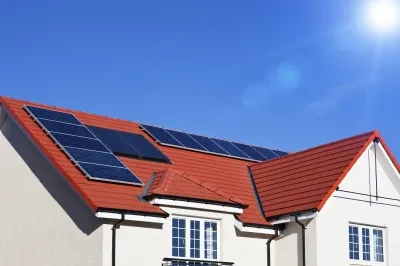

Image courtesy of Serge Bertasius Photography at FreeDigitalPhotos.net
The number of installations completed under the Feed-in-Tariff (FiT) has leapt by nearly a third in just 12 months, statistics published by the Department of Energy and Climate Change (DECC) have revealed.
Overall Feed-in Tariff (FIT) deployment at the end of January 2016 was 4,690 MW (853,158 installations), a 29% increase in total FIT installed capacity compared to the same period in 2015, and a 30% increase in the number of installations.
Photovoltaics (PV) were responsible for 99.7% of the increase in installations and 89% of growth in capacity, with wind contributing six per cent to capacity growth.
The largest growth since January 2015 was seen in PV (up 32% to 3,910 MW) and Hydro (up 29% to 102 MW).
PV installations increased rapidly at the start of the FIT tariff scheme, but the rate of increase slowed after August 2012 following tariff reductions.
As at the end of January 2016, PV installations represented 83% of total installed capacity (3,910 MW) and 99% of the total number of installations (844,119).
Sub-50kW PV installations represented 80% (3,138 MW) of total PV installed capacity and 99% (839,271) of the total number of PV installations.
It is not just the FiT that is proving to be a success. More than 80% of applicants to the Renewable Heat Incentive (RHI) scheme are satisfied with their new systems, according to new evaluation reports published by DECC.
The reports show the positive impact of the RHI schemes, with the majority of accredited renewable heat installers reporting that the RHI has been wholly positive in its influence on the renewable heat technology market.
The government has committed to increase funding for the RHI to £1.15 billion in 2021 to ensure the UK continues to make progress towards its climate goals while reforming the scheme to improve value for money, delivering savings of almost £700 million by 2020-21.
Energy Minister, Lord Bourne, said: “Reforming how we use energy for heating is critical to achieving secure, affordable and clean energy for families and businesses across the country. That is why the government will be pushing a more cost effective, targeted RHI scheme for the next five years.”
